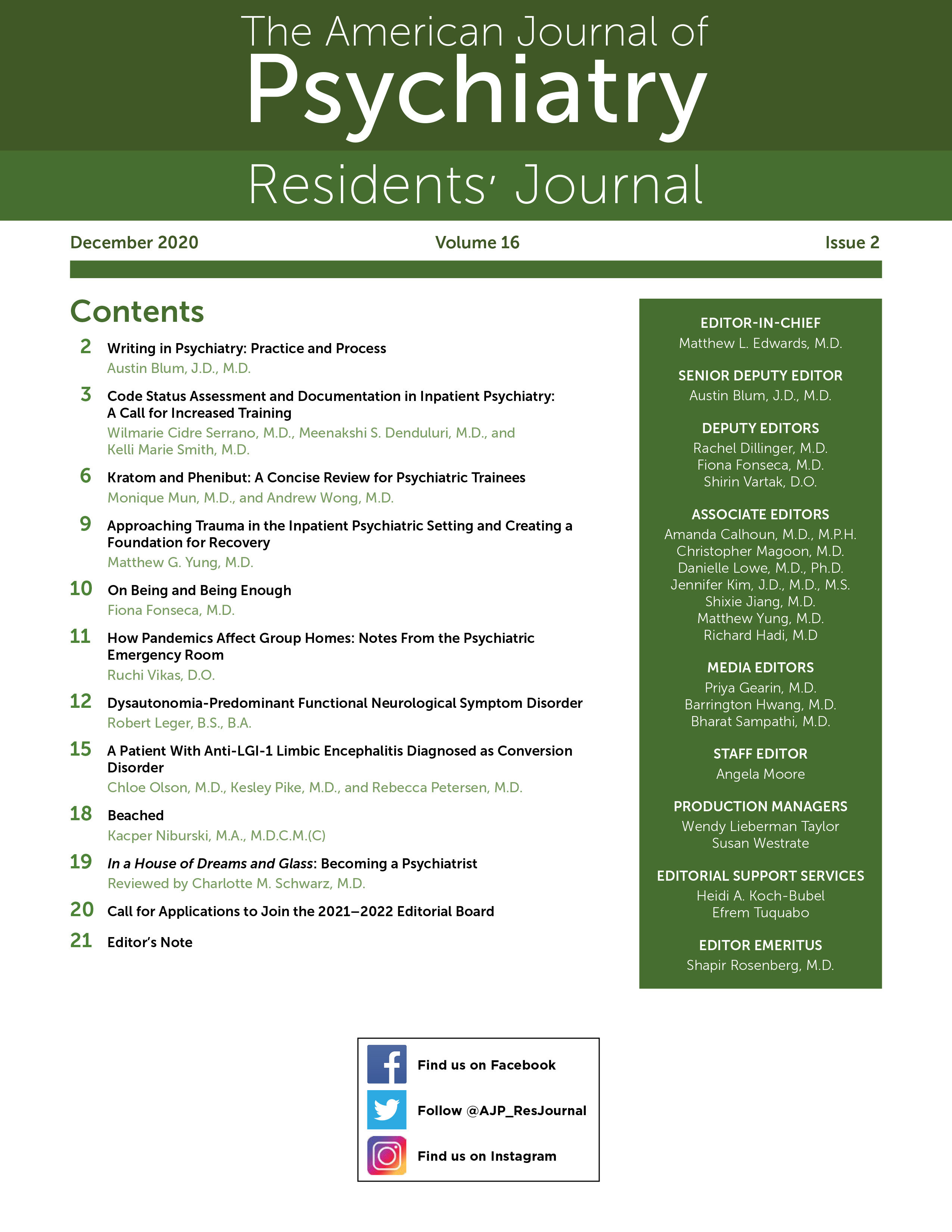Years before my interests led me to the practice of psychiatry, I was sitting in a law school lecture hall while our legal writing instructor detailed her expectations for our first assignment. We were to write a five-page memorandum on a discrete legal issue: how a child custody battle should be resolved. Everything seemed straightforward. She asked us how long we expected the assignment to take. After most of us answered on the order of 5–12 hours, our instructor revealed the expected time frame: 80 hours. Eighty. Concerned glances were exchanged. At that moment, I realized that becoming an effective writer—whether for legal readers or a general audience—would require much more work than I had anticipated.
At this point in our medical education and training, few of us will ever again be compelled to write by a classroom instructor. However, the course of that education and training has given each of us an abundance of reasons to continue our writing: because a patient taught us something important, because we want to push academic medicine forward, because we want to engage and be heard. These are all good reasons to write. But having a reason to write is only the beginning. Just as important as why we write is how we express ourselves when we do. To convince others of our ideas, we must organize them effectively and present them engagingly.
As psychiatry trainees, most of us probably do not think of ourselves as professional storytellers. In reality, we tell stories about our work all the time. Whenever we write a case report, an article, or even a drug review, we are telling a story about a patient or a particular scientific discovery, whether we think of it that way or not. By learning the principles of effective storytelling, we can all become better writers and communicators.
Like other stories, the kinds of stories we tell in academic writing are characterized by two essential elements: characters and causality. The characters in our stories may be patients, key figures in the field, scientific concepts, or even ourselves as authors. As the stories unfold, things happen to our characters. They experience events that cause them to change in some way. These events have consequences for the characters—what author Matthew Dicks has called
stakes—and these consequences are what make your readers keep reading (
1). This basic narrative framework can be readily applied to all kinds of writing. For more details, consider reading one of the many wonderful books on scientific storytelling, such as Randy Olson’s
Houston, We Have a Narrative (
2). Give it a try and see how your writing changes.
On a more granular (but no less important) level, effective writing requires one to organize words, sentences, and paragraphs in a manner that is both logical and grammatically correct. Each paragraph should address a single thought or idea. Within a paragraph or individual sentence, information should flow from what is old or less important to what is new or more important. Concision is key. These and other principles of good writing are discussed in books such as Williams and Bizup’s
Style: Lessons in Clarity and Grace (my personal favorite) (
3) and Jacques Barzun’s
Simple & Direct: A Rhetoric for Writers (preferred by the
Residents’ Journal’s editor-in-chief, Matthew Edwards) (
4).
Once you have written your first draft, you will have to rewrite it. And rewrite it again. As Anne Lamott argued in
Bird by Bird: Some Instructions on Writing and Life, our terrible first drafts become good second drafts and terrific third drafts (
5). When your manuscript is finally finished, be sure to format it properly—in this case according to the guidelines on the
Residents’ Journal website.
Writing well is difficult but rewarding. With practice, you will find that the process becomes easier and increasingly satisfying. Both you and your professional audience will benefit from your efforts.
We look forward to reading your submission to the Residents’ Journal!
